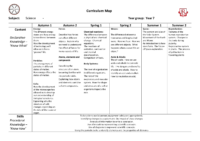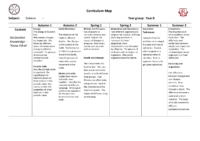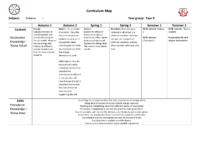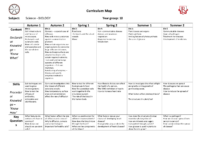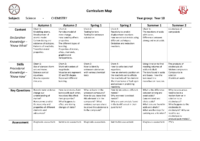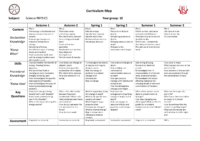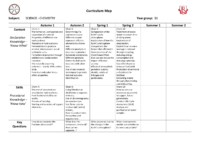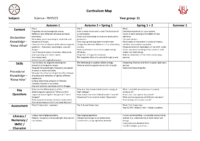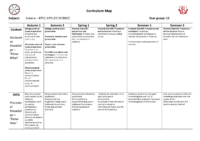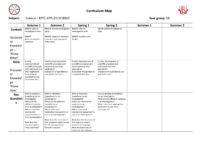Science
We live in a scientific world, our culture is shaped by our understanding and science is the discipline that drives our understanding.
The science department at Ridgeway Academy intend that our students leave the academy with a scientific mind-set. We guide students to research the validity of claims and to not fall victim to misinformation and ‘fake news’. Students will recognise that the discipline of science makes up almost every part of our daily life and is constantly evolving new technologies and materials to benefit the wider community. Through the study of science at Ridgeway Academy students will be able to see the bigger picture of the world around them, from the wonders of the microscopic world, to the elements that make up the earth, to the brilliance of the vast cosmos. The study of science allows us to explore the world and universe that we live in and should foster and engage our curiosity about natural phenomena that we observe. By developing a better understanding and set of skills associated with scientific activity we can make better, more informed decisions about the society and environment we live in.Welcome to the Science Department – Subject Leader: Mrs Kemp
Key Stage 3
During year 7 and 8 students follow a scheme of learning that has been designed to inspire, motivate and develop their knowledge from primary school. Practical work is embedded into the curriculum to support the development of critical knowledge. Learning opportunities are carefully planned to highlight where key scientific knowledge plays a part in our everyday lives.
In year 9 students follow a bespoke course that help to bridge the gap between KS3 and KS4 through investigative science. Students are given the opportunity to further develop their understanding of how the science that is taught in the classroom can be developed into bigger ideas that can impact the wider community. After the Easter break, students move onto study GCSE content, this allows the science team to have sufficient time to cover the content and make relevant links between the theory and application.
Our curriculum is sequenced in a logical order to ensure students are constantly building on knowledge as they progress from KS3 to KS4 and onto KS5. The curriculum also allows students to revisit prior knowledge before starting new content to allow them to increase their depth of understanding and their ability to apply their knowledge to unfamiliar contexts. In year 10 and 11 students have the option to follow the Single science course or the Combined science – trilogy course. Students are selected for the most appropriate course by their class teach based on a number of factors including desire to study science subjects post 16, interest in the subject and performance in assessments. At the end of year 11 all students regardless of course will sit six exam papers, students have the option to sit the higher or foundation tier paper. Students will learn how to observe and examine the world around us. To develop questions and then set about finding the answers to the questions by conducting reliable and valid investigations.They will learn how to represent data in tables and graphs as well as being critical of the nature of data and how it is collected: checking for bias, accuracy and reliability. A great variety of careers including: Astronomy : Dedica All homework tasks are set through the application ‘‘Educake’. A quiz-based activity will be set by the class teacher at least once a week to cover both content that is currently being taught and content from older topics to help with revision and retention of information. Extra-Curricular: The science team offer a weekly science club for KS3. In addition we have opportunities for students to participate in trips and competitions to further develop their science knowledge such as the Big Bang Fair, The Faraday Challenge, Crest Award and the BP challenge.Curriculum and Terminal Exams
Exams
What skills will students learn / develop and how will they learn?
Where could the subject lead – career wise?
Biochemistry : Dedicated to the study of chemical processes in living organisms
Clinical Research : Clinical trials and research of new medical treatments
Developmental Biology : The study of growth and development of the human body
Engineering : Field of technology and invention
Genetics : Sc
Immunology : Biomedica
Neuroscience : Science of the nervous system
Pharmacology : Dedicated to the study of drugs on the human body
Veterinary Medicine : Study of medicines required for treating animal diseases
Zoology : DHomework and Extra-Curricular Activities



